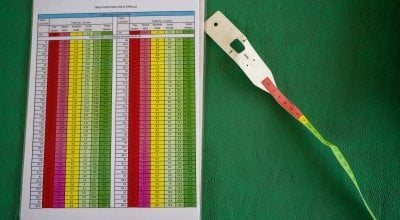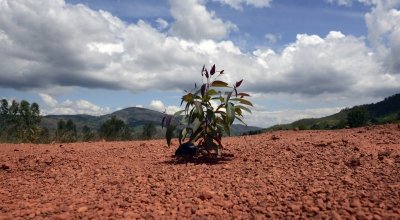
Knowledge Hub
International development is focused on engaging with economically disadvantaged regions to empower people to improve their well-being and address the causes and effects of poverty.
The concept of international development is underlined by the idea that societies and countries have differing levels of 'development' and can be categorised as developed, developing or least developed.
More than 719 million people, or 10% of the world population, still live in extreme poverty so the scale of the challenge is immense. But there is a plan and civil society organisations, the private sector, and governments are all involved.
How is the world approaching sustainable development?
In 2015 all United Nations Member States adopted the 2030 Agenda for Sustainable Development. At the core of this agenda are the 17 Sustainable Development Goals (SDGs), which are a call for action by all countries.
They SDGs recognise that ending poverty must go hand-in-hand with strategies that improve health and education, reduce inequality, and spur economic growth – all while tackling climate change and working to preserve our oceans and forests.
The 17 SDGs are:
GOAL 1: No Poverty
GOAL 2: Zero Hunger
GOAL 3: Good Health and Well-being
GOAL 4: Quality Education
GOAL 5: Gender Equality
GOAL 6: Clean Water and Sanitation
GOAL 7: Affordable and Clean Energy
GOAL 8: Decent Work and Economic Growth
GOAL 9: Industry, Innovation and Infrastructure
GOAL 10: Reduced Inequality
GOAL 11: Sustainable Cities and Communities
GOAL 12: Responsible Consumption and Production
GOAL 13: Climate Action
GOAL 14: Life Below Water
GOAL 15: Life on Land
GOAL 16: Peace and Justice Strong Institutions
GOAL 17: Partnerships to achieve the Goal
Each year a Sustainable Development Goals Report is published by the UN Secretary-General and provides an overview of the world’s implementation efforts to date, with the latest UN data highlighting areas of progress and areas where more action needs to be taken to ensure no one is left behind.
In 2023, the report showed that despite headway on some SDGs, the impacts of the climate crisis, the war in Ukraine, a weak global economy and COVID-19 have hindered progress towards the Goals. It also points out areas that need urgent action to rescue the SDGs and deliver meaningful progress for people and the planet by 2030.





What is the UK government doing to end extreme poverty?
The Foreign, Commonwealth & Development Office (FCDO) leads the UK’s work to end extreme poverty and allocates Overseas Development Assistance (ODA), also known as the overseas aid budget. They are responsible for:
- honouring the UK’s international commitments and taking action to achieve the United Nations’ Global Goals
- making British aid more effective by improving transparency, openness and value for money
- targeting British international development policy on economic growth and wealth creation
- improving the coherence and performance of British international development policy in fragile and conflict-affected countries
- improving the lives of girls and women through better education and a greater choice on family planning
- preventing violence against girls and women in the developing world
- helping to prevent climate change and encouraging adaptation and low-carbon growth in developing countries
- supporting democracy and human rights
- The FCDO also leads on diplomatic relations between the UK and other countries.
FCDO works in countries across Africa, Asia and the Middle East, many of which are fragile or at risk from fragile neighbours. They also have regional programmes in Africa, Asia and the Caribbean. In addition to working directly in countries, FCDO also gives UK Aid through multi-country global programmes and core contributions to multilaterals such as the UN and the World Bank.
The World Bank is the world’s largest development institution. The Bank Group works with country governments, the private sector, civil society organisations, regional development banks, think tanks, and other international institutions on issues ranging from climate change, conflict, and food security to education, agriculture, finance, and trade. All of these efforts support the Bank Group’s twin goals of ending extreme poverty by 2030 and boosting shared prosperity of the poorest 40 percent of the population in all countries.
Can we end poverty and hunger by 2030?
We will continue in our mission to end extreme poverty, whatever it takes.
Other ways to help
Donate now
Give a one-off, or a monthly, donation today.
Join an event
From mountain trekking to marathon running, join us for one of our many exciting outdoor events!
Buy a gift
With an extensive range of alternative gifts, we have something to suit everybody.
Leave a gift in your will
Leave the world a better place with a life-changing legacy.
Become a corporate supporter
We partner with a range of organisations that share our passion and the results have been fantastic.
Create your own fundraising event
Raise money for Concern by organising your own charity fundraising event.





